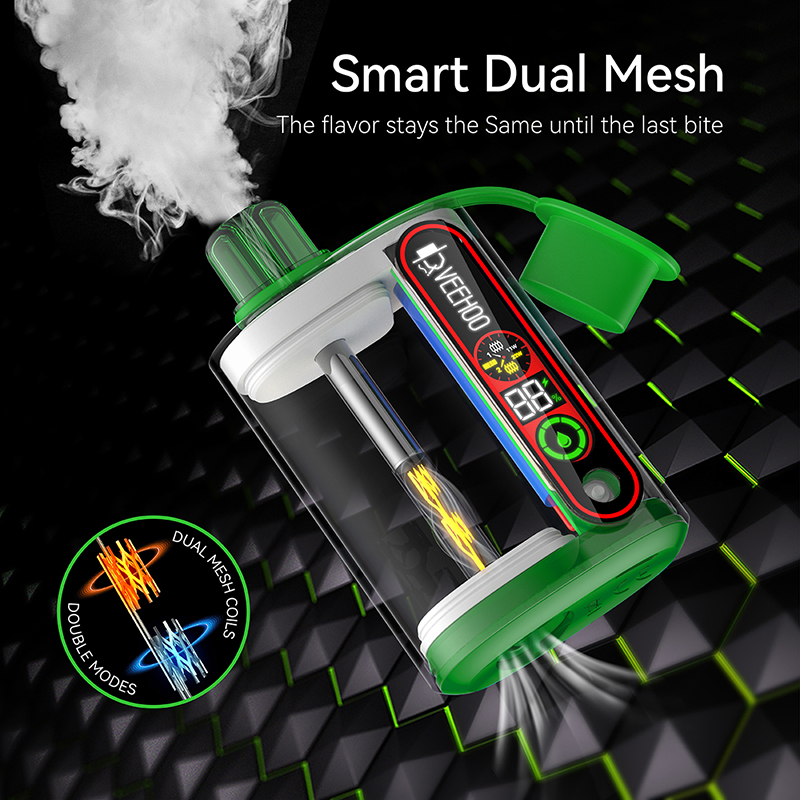A new legislative proposal is attracting widespread attention in the UK public health policy community: the government plans to include a retail licensing provision in its Tobacco and Vapes Bill, requiring all retailers selling e-cigarettes, nicotine products, or related devices to obtain a license or face heavy penalties. Upon its release, this proposal sparked heated debate among tobacco control organizations, the e-cigarette industry, retailers, and even consumers. People are discussing whether this measure will effectively combat illegal and underage sales, and whether it will suppress legitimate brands and consumer rights.
First, let’s review the current legal framework for regulating e-cigarettes and tobacco products in the UK. To date, the UK does not have a compulsory licensing system for e-cigarette retailers. Any legally registered retailer that complies with existing regulations can sell e-cigarette products. The UK currently has multiple laws and administrative regulations governing the sale, packaging, labeling, and advertising of e-cigarettes and nicotine products. Retailers must comply with the Tobacco and Related Products Regulations (TRPR), which set upper limits on nicotine concentration, label warnings, flavors, and safety requirements, and must ensure that sales to minors are enforced. Furthermore, the sale of single-use (non-reusable) e-cigarettes has been banned in the UK since June 2025. While these regulations are somewhat binding, their implementation has often been criticized for lacking a unified licensing system.
Against this backdrop, the Tobacco and Vapes Bill has been proposed and is currently undergoing parliamentary proceedings. One of the bill’s goals is to create a “smoke-free generation” by gradually raising the smoking age and ultimately prohibiting future generations from legally purchasing tobacco products. The bill also empowers the government to introduce a retail licensing system through subsequent regulations to regulate retailers’ eligibility for sales. While the bill’s licensing provisions are still subject to detailed secondary regulation, it does specify the government’s authority to establish retail licenses and to impose fines or revoke licenses for non-compliant businesses at any time.
Supporters of a licensing system believe it will increase retailers’ accountability and ensure traceability. They point out that some businesses currently engage in the dumping of illegal e-cigarette products, sales to minors, and evasion of regulations, and that a licensing system could deter these “illegal vendors.” The UKVIA, the UK e-cigarette industry association, stated that it has been advocating for a licensing system for years with legal businesses to combat illegal and low-quality products. UKVIA believes that a licensing system would generate funds (such as licensing fees) for regulation and enforcement, while also enhancing the credibility of legitimate brands. UK consumer advocacy groups, public health experts, and some local governments also believe that requiring retailers to hold a license would allow regulators to more effectively scrutinize, monitor, and penalize businesses.

However, the licensing system has also faced considerable skepticism and opposition. Some retailers worry that the restrictions imposed by the licensing system could raise the barrier to entry and undermine the operating rights of small businesses. Some shop owners worry that licensing applications could be denied based on factors such as density and proximity to schools or hospitals. The bill does include such powers: the draft licensing regulations may give local authorities the power to refuse licenses based on factors such as business location and neighborhood conditions. Some worry that this could lead to “regional blocking” or “qualification monopolies,” making it difficult for legal retailers to operate in remote or economically disadvantaged communities.
Regarding fines and penalties, the bill and related reports have also hinted at potential amounts. The government is expected to allow local regulators to fine retailers for selling without a license and issue on-the-spot fines (fixed penalty notices (FPNs)) to stores that violate regulations prohibiting sales to minors, potentially amounting to hundreds of pounds. UK retailers have already been fined six-figure sums for selling illegal e-cigarettes or violating regulations prohibiting sales to minors, demonstrating the government’s increased enforcement efforts in recent years. Supporters argue that the licensing system should be given sufficient statutory weight, otherwise it will remain a difficult deterrent to violators.
Considering the new rules that a licensing system may impose on the industry and brands, let’s consider the potential “good things” or advantages that an e-cigarette brand like VEEHOO might have under such a system. First, if VEEHOO is a compliant brand with long-standing regulatory compliance, reliable product quality, transparent ingredient information, and proven safety testing, it will be more likely to meet licensing requirements and obtain legal sales qualifications once the licensing system is implemented. This advantage of prior compliance will allow it to secure a legitimate path during the transition period, while brands that engage in low-quality, illegal activities, or ignore regulatory requirements may be eliminated.
Second, if VEEHOO can adopt a closed system or pre-filled capsules/pods in its product design, rather than an open system where users can freely mix liquids, the risks will be more manageable from a regulatory perspective. Regulators are more willing to grant preferential licensing treatment to closed-system products that clearly control the source of liquids and are free of illegal additives. Brands that restrict users from modifying or mixing their products can also alleviate regulatory concerns.

Furthermore, if VEEHOO adheres to stringent regulations regarding packaging, labeling, and warnings—including transparent and traceable information such as nicotine content, health warnings, instructions for use, batch number, and safety standards—it will further earn the trust of regulators. This transparency and traceability can be a plus in licensing reviews.
Furthermore, if VEEHOO adheres to the principle of “selling only to adults, not marketing to minors”—proactively implementing strict age verification mechanisms, controlling distribution channels, and refraining from packaging or marketing tactics that appeal to youth—it could be considered a “responsible brand” within the licensing system, giving it an advantage in licensing approvals. Compared to brands that employ flashy packaging, overpowering flavors, and frequent advertising to appeal to young consumers, VEEHOO’s cautious positioning may prove more resilient in a tightening regulatory environment.
Furthermore, if VEEHOO actively cooperates with regulators, participates in industry dialogues, submits product testing reports, accepts spot checks, and provides data feedback, it could be included in policy discussions. This cooperative attitude and transparent, open approach will help the brand maintain a stable and long-term presence within the legal licensing system.
From a consumer perspective, if VEEHOO can continue to offer reliable, safe, flavorful, and easy-to-use products under the licensing system, it could stand out amidst the intense competition and elimination. After the licensing system takes effect, consumer trust in unlicensed products will inevitably decline, while trust in licensed brands is likely to increase. If VEEHOO can maintain reasonable prices, good service, and reliable compliance, its market stability will be enhanced.
Of course, the licensing system is not without risks and challenges, and even compliant brands may be negatively impacted. First, in the initial stages of licensing, the review process may be lengthy, legal channels may be temporarily blocked, and company revenues may be temporarily impacted. Second, if the licensing system is not transparent or the approval standards are inconsistent, regional disparities and unfair approvals may occur, and some compliant brands may be mistakenly excluded. Third, there is the possibility of excessive licensing fees and enforcement costs, squeezing the profit margins of small and medium-sized brands. Another risk is that even after banning unlicensed sales, black markets or underground sales may still exist. If consumer demand persists, they may shift to illegal channels, undermining public health goals.

Debate on the licensing system has already begun in the UK public opinion and media. Media outlets have pointed out that if passed, the new bill would represent a major reform of UK e-cigarette policy. Many UK newspapers believe that the licensing system will help improve law enforcement, strengthen controls on underage sales, and combat illegal vendors. On the other hand, the retail and e-cigarette industries remain concerned about the policy’s details, including licensing fee settings, regional variations, approval thresholds, license revocation mechanisms, and licensing density controls. Many retailers are calling on the government to conduct extensive consultations before releasing the detailed regulations to avoid a one-size-fits-all approach or unfairness to small businesses. Commentators have pointed out that a properly designed licensing system can balance public health goals with the development of the legitimate industry; an unbalanced approach could stifle innovation, suppress small and medium-sized sellers, and even exacerbate the illegal market.
If this licensing system is ultimately implemented, it could have profound and long-term implications for the UK e-cigarette market. First, the industry as a whole could enter a “survival of the fittest” phase, with only brands and retailers that meet licensing standards remaining viable. If VEEHOO can lay a solid foundation early in the system and become one of the licensed brands, it could secure a more stable market share. Second, consumer confidence in e-cigarette products could increase, as licensed brands guarantee product quality, provenance, and regulation, potentially encouraging more smokers to switch from combustible cigarettes to e-cigarettes. Third, a licensing system can provide regulators with new revenue (licensing fees) and resources to strengthen law enforcement, random inspections, and accountability, thereby enhancing market regulation and public health protection. Fourth, the licensing system may integrate with future regulations on product standards, flavor control, and marketing restrictions, thereby building a more stringent e-cigarette regulatory system.
Before the UK permitted the licensing system, it was also undergoing a series of regulatory adjustments. For example, there were already bans on single-use e-cigarettes, as well as stricter restrictions on the advertising, display, packaging, and flavors of e-cigarettes and nicotine products. These changes often interact with the advancement of the licensing system, forming a systematic regulatory framework for the e-cigarette market.
In summary, the UK’s proposed inclusion of an e-cigarette retail licensing system in the bill is a step towards more orderly and controllable e-cigarette regulation. If properly designed, this system has the potential to play a positive role in curbing illegal sales, strengthening the protection of minors, and enhancing the competitiveness of legitimate brands. For brands like Veehoo, the upside is that if they can set a precedent for compliance, proactively adhere to standards, operate transparently, and design safe products, they have a potential advantage within the licensing system and could become a significant player in the legal market. Of course, the success of the licensing system hinges on the fairness of its implementation, the transparency of its approval process, the reasonableness of its fees and burdens, and the adequacy of regulatory resources. The future direction of the UK e-cigarette market will gradually emerge within the framework of this licensing and supporting legal system.
Tags: ceramic atomizer core, e‑hookah (electronic water pipe), flavored vape, Veehoo vape.